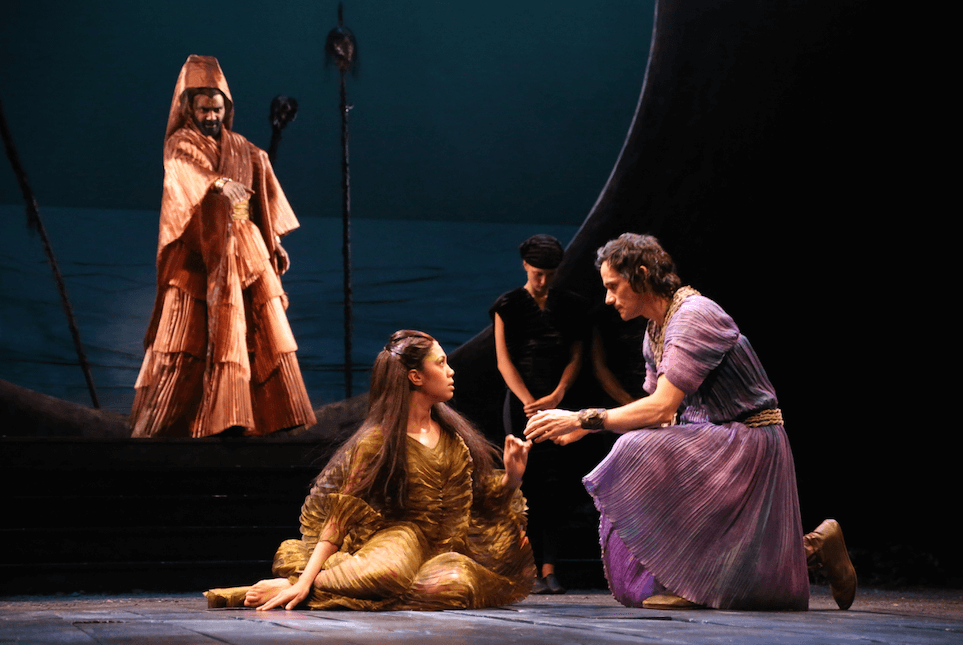Pericles, One of Shakespeare’s Most Difficult Plays, Has a Compelling New Staging in Brooklyn


photo by Gerry Goodstein
Pericles
Theatre for a New Audience
Polonsky Shakespeare Center
262 Ashland Place, Fort Greene
The British director Trevor Nunn has been directing notable Shakespeare productions for half a century, and he has come to a point where there are only a few Shakespeare plays he hasn’t tried. One of these is Pericles, which is thought by scholars to be a collaboration between Shakespeare and George Wilkins, a shady barroom brawler and probable brothel-keeper. The first two acts of Pericles are probably by Wilkins and the last three are likely by Shakespeare, and this makes sense because the first half of the play has a loose narrative and a gloomy point of view whereas the second half of it is far more dramatically taut and lively, with two-character confrontation scenes that are allowed to build some suspense.
This Nunn version of Pericles at the spiffy Polonsky Shakespeare Center in Brooklyn is a little like a La MaMa production in its slow-moving earnestness and its reliance on music and song, but it has one key element in its favor: Christian Camargo’s strong performance in the title role. Camargo, who has played Hamlet, Coriolanus, and Mercutio on the New York stage, has everything a classic theater actor needs in the way of looks, presence, and vocal command, and he pushes the verse forward in an excitingly propulsive way, keeping tight hold on both the rhythm and the meaning of the words. Camargo has a delicate, lyrical look, and there is always a sense that he might collapse at any moment from emotional strain, and this gives a welcome tension to the production.
Pericles isn’t done often, and that’s because it is hard to get the first and second half to stick together satisfactorily and to manage the change in tone from gloominess (Pericles survives two separate shipwrecks) and glimmers of hope that lead to an optimistic close. The play begins with a series of scenes in which Pericles tries to win the hand of a young beauty (Sam Morales) but gets put off by her father King Antiochus (Earl Baker Jr.), who is having incestuous relations with his daughter. This disturbing set-up turns out to be a bit of a red herring, leading Pericles into foreign lands and those shipwrecks that keep leaving him for dead.
A lot of the second part of the play is taken up with the plight of Pericles’s daughter, the fair Marina (Lilly Englert), who is captured by pirates and held captive in a brothel where her chastity is continually threatened. These scenes in the brothel, which Nunn makes into a harem, have nearly a comic element to them now, though they seem to have been meant seriously as Marina continually puts off prospective johns with prayers and entreaties to their sense of honor.
Pericles is so difficult to do because it doesn’t have a spine that can be followed from beginning to end, though Camargo tries his best to find one in the last scenes when Pericles has gotten older and wiped out and has grown a long grey beard. Nunn now has only two more Shakespeare plays he hasn’t staged: the seldom- produced King John and the ever-popular A Midsummer Night’s Dream. So this is basically a chance for Nunn to check Pericles off his list, but you aren’t likely to see a full-scale production again of this particular play with such a fine lead actor and director.
You might also like 




















